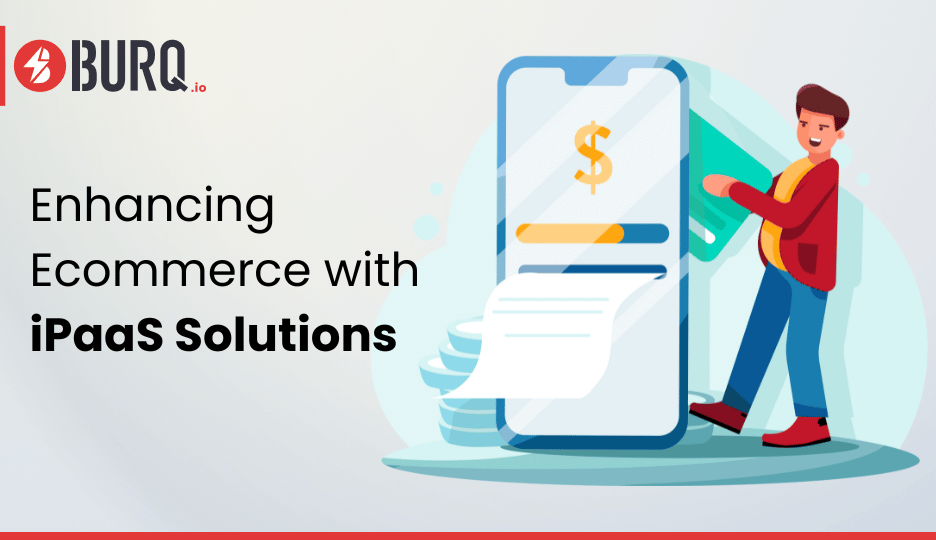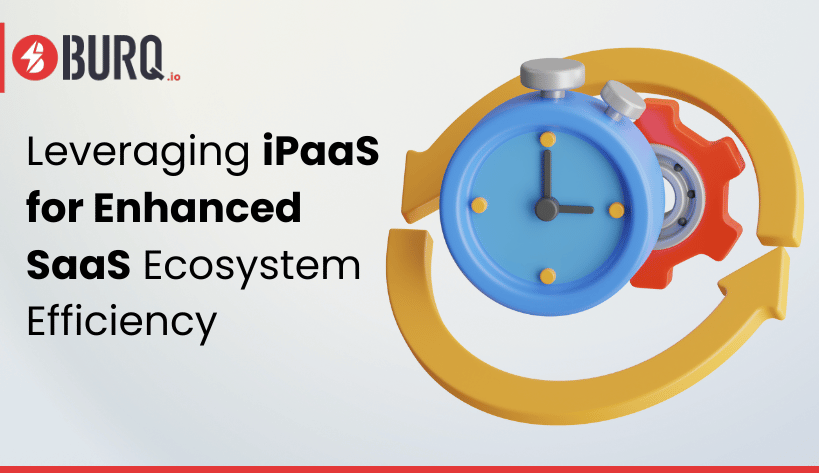Integration has been the unsung hero of the technology world, quietly ensuring that all our different software systems work in harmony. It’s a critical element that underpins data management, operational efficiency, and the overall customer experience. Yet, integration has traditionally been a domain of complexity, with high barriers to entry and opaque, time-consuming processes. This status quo is rapidly evolving, and iPaaS is at the forefront of this transformation, promising a more agile and accessible future for business integrations.
In this comprehensive exploration, we will unpack the nuances of iPaaS, contextualizing it within the broader challenges of traditional integration while highlighting the pivotal role that low-code platforms like Burq.io are playing in revolutionizing the landscape. We’ll address common questions and concerns, articulate the benefits, and illustrate real-world applications with the hope of demystifying this powerful tool for business owners, IT professionals, and developers alike.
Understanding iPaaS
Integration Platform as a Service (iPaaS) is a cloud-based tool that connects applications, data sources, and storage at the API level, enabling businesses to integrate these elements more easily and efficiently. At its core, iPaaS is about simplifying the integration process, making it more scalable, and lessening the burden on IT departments.
Defining iPaaS
iPaaS platforms facilitate and streamline data flows between different platforms and across various geographies, often in real-time. By placing integration in the cloud, iPaaS also reduces the upfront costs associated with traditional on-site integration solutions, offering a subscription-based model that scales with business needs.
The Components of iPaaS
An iPaaS typically consists of a set of cloud services, which include connectors, integration flows, and data mapping tools. Connectors are pre-built interfaces tailored to a specific application; integration flows are the paths taken by data between these connectors, usually consisting of a trigger and an action; and data mapping tools make sure data is translated correctly between the two ends of an integration.
The Role of iPaaS in Business Integration
The role of iPaaS goes beyond merely connecting systems – it also facilitates data management, ensuring that data is transformed and harmonized in a way that is both efficient and compliant with an organization’s standards and policies. This level of automation dramatically reduces the manual workload associated with day-to-day data management and enables organizations to maintain a more accurate, up-to-date view of their operations.
The Benefits of Adopting an iPaaS Solution
The benefits of iPaaS are clear. The platform offers a single, cohesive solution, simplifying complex situations and reducing the need for specialized IT knowledge. It’s also scalable, making it just as suitable for a small enterprise as it is for a global corporation.
Another significant advantage is the agility iPaaS brings to an organization in terms of the time-to-market. New integrations can be set up quickly, tested, and deployed with minimal human intervention, allowing businesses to pivot and innovate at the pace required by the modern marketplace.
Scalability and Elasticity
iPaaS is designed to handle fluctuations in data volume and complexity, ensuring that integration can keep pace with business growth and the demands of a dynamic marketplace.
Accessibility and Democratization of Integration
By moving integration to the cloud, iPaaS opens up integration to a wider audience. It allows non-technical staff to build integrations without coding, democratizing the process and reducing reliance on specialist IT skills.
Cost Savings
The cloud-based subscription model for iPaaS means reduced initial investments and predictable ongoing costs, contributing to a more cost-effective IT operation.
Streamlined User Experience
With user-friendly and intuitive interfaces, iPaaS platforms are designed to streamline the integration process, making it more accessible and less error-prone for the end user.
The Rise of Low-Code Solutions
Low-code development platforms have seen a meteoric rise in popularity, driven by a need for faster development cycles and a lack of skilled developers. These platforms offer a way to develop applications and, significantly, to integrate systems, with minimal hand-coding and minimal disruption to existing systems.
What Are Low-Code Integration Platforms?
Low-code integration platforms, like low-code development platforms, provide a visual interface with pre-built elements. Users can drag and drop these elements to create complex workflows that integrate systems with relative ease and rapidity.
Speeding Up Deployment
The speed at which low-code platforms can deploy new integrations is a significant advantage. This rapid deployment can be a game-changer for businesses that need to respond quickly to market changes or new opportunities.
Reduced Reliance on Specialists
By minimizing the level of technical skill required, low-code platforms allow a broader range of team members to participate in and oversee the integration process, reducing the potential bottlenecks created by a shortage of specialized talent.
The Future Is Low-Code
Low-code isn’t just about filling a current skills gap; it reflects a broader trend toward democratizing IT and empowering business users to drive innovation. In the context of integration, low-code is a powerful ally, promising a more capable and agile future for business operations.
Burq.io
What is Burq.io?
Burq.io is a cloud-based integration platform that offers a comprehensive suite of services for businesses of all sizes. It specializes in data synchronization, ensuring that the right data is available in the right place at the right time, streamlining business operations and ensuring that decisions are made with the most up-to-date information.
Key Features of Burq.io
One of the core features of Burq.io is its data synchronization service. This ensures that disparate systems across an organization stay in perfect harmony. It also offers a powerful workflow automation tool that reduces the manual overhead of day-to-day operations, all while maintaining an auditable trail of changes.
Standing Out in the iPaaS Landscape
What sets Burq.io apart is its commitment to making complex integrations simple. This is reflected in the user-friendly design of its platform and the extensive customer support it provides, making it a compelling option for businesses looking to modernize their integration approach.
Real-World Applications of iPaaS Solutions
The versatility of iPaaS means it can find application across a wide range of scenarios. From connecting customer relationship management (CRM) and enterprise resource planning (ERP) systems to automating e-commerce processes, iPaaS solutions like Burq.io are central to the smooth functioning of a modern business.
Connecting CRM and ERP Systems
Integrating CRM and ERP systems offers a holistic view of customer interactions and business operations. It ensures that customer data is consistent across the organization, which is vital for personalized marketing, customer service, and strategic decision-making.
Automating E-Commerce Processes
In an e-commerce environment, speed and accuracy are paramount. iPaaS can automate the flow of data between an organization’s front-end sales platform and back-end inventory and logistics systems, ensuring orders are processed and fulfilled with minimal delay and maximum efficiency.
Streamlining Financial Systems
For many businesses, the integration of financial systems is one of the most critical processes. iPaaS can harmonize the data flow between financial platforms, providing accurate and real-time reporting and compliance.
Overcoming Challenges with iPaaS
While the benefits of iPaaS are compelling, there are challenges to be navigated, particularly around data security, compliance, and the transition from legacy systems. Here’s how businesses can address these challenges.
Addressing Data Security and Compliance
Security and compliance are top of mind for all businesses. When considering an iPaaS solution, it’s essential to evaluate the vendor’s security framework and ensure it meets industry standards.
Transitioning from Legacy Systems
The shift to iPaaS often involves transitioning from legacy systems, which can be complex and fraught with potential problems. A robust change management strategy that involves all stakeholders is essential to a successful transition.
Integration with Existing IT Infrastructure
iPaaS solutions must seamlessly integrate with an organization’s existing IT infrastructure. Compatibility with current systems is a key consideration when choosing a platform.
Future Trends in iPaaS and Integration
The future of iPaaS is bright, with emerging trends set to further enhance its capabilities. Two areas to watch are the integration of artificial intelligence and machine learning and an increased focus on security.
AI and Machine Learning Integration
The integration of AI and machine learning functions into iPaaS platforms can unlock a new level of intelligence in data processing and workflow automation. Predictive analytics and self-optimizing workflows are just the beginning.
Enhanced Security Measures
With data breaches becoming more sophisticated, the future of iPaaS will likely incorporate advanced security measures, such as biometric authentication and blockchain technology, to provide an even more robust level of security.
Conclusion
iPaaS is more than a clever acronym; it’s a paradigm shift in how businesses approach the often complex world of system integration. With its cloud-based, scalable, and user-friendly platform, iPaaS stands to revolutionize the way businesses handle their integration challenges.
For enterprises looking to stay ahead of the curve and streamline their operations, the future is clear – it’s in the cloud, with iPaaS leading the charge. And for those who want to explore the potential of iPaaS further, platforms like Burq.io offer a tangible and compelling way to do just that.
By understanding the benefits, applications, and potential challenges of iPaaS, businesses can leverage this powerful tool to enhance their agility, reduce complexity, and stay competitive in an increasingly connected world.


